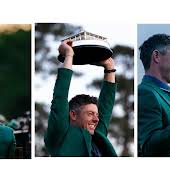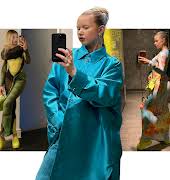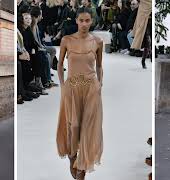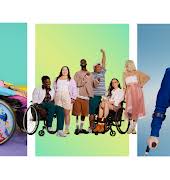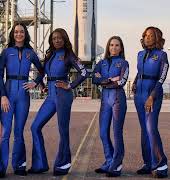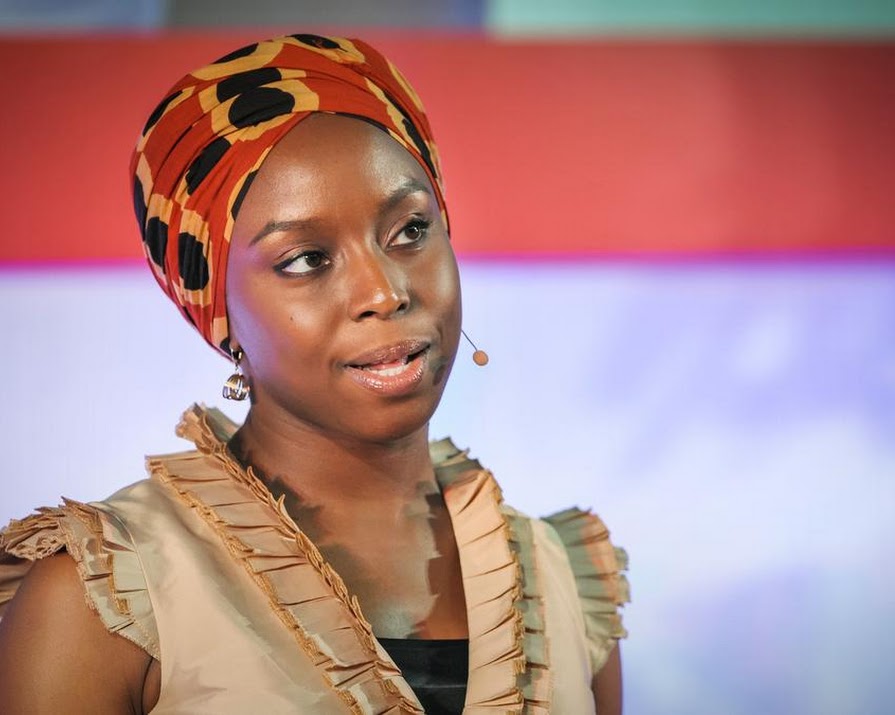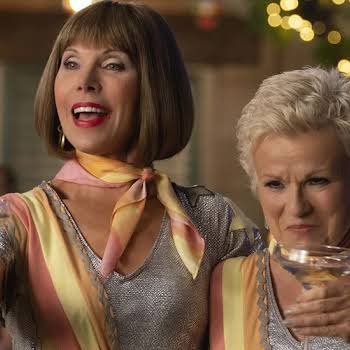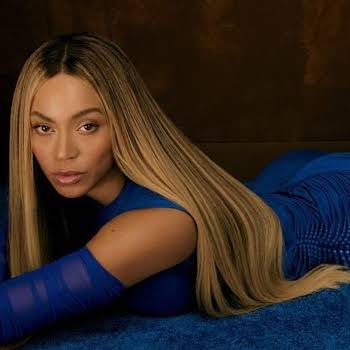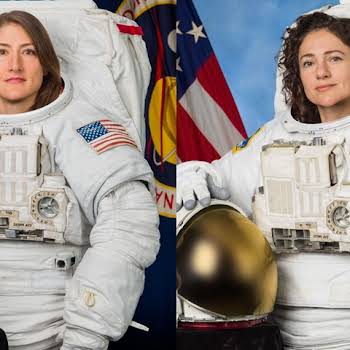
How one speech by Chimamanda Ngozi Adichie brought feminism to the masses
By Erin Lindsay
20th Apr 2018
20th Apr 2018
If you’ve had a conversation about feminism in the past few years, you’ve probably referenced writer Chimamanda Ngozi Adichie. A celebrated author and poet, her TEDx talk and inspired a generation of young women to proudly identify as feminists. How did one half-hour speech fit into the global awakening of third wave feminism?
Let’s start at the beginning. Chimamanda Ngozi Adichie was born in 1977 in Nigeria, and at 19, travelled to the US to study communications and political science. It was here that she began to hone her voice as a writer and as an activist, due to the multitude of new experiences she had in her new surroundings. She began to notice how she was subject to judgement because of the colour of her skin; something she had never experienced in Nigeria. She began to consider race as an idea in ways she hadn’t before.
After receiving her Bachelor’s degree in 2001, a Masters in creative writing and African studies followed, but Chimamanda’s education was far from over. In 2008, she was awarded a Macarthur fellowship (in addition to fellowships from Princeton and Harvard) and almost ten years later, she became a member of the 237th class of the American Academy of Arts and Sciences, one of the highest honours for intellectuals in the United States.
Her Writing
Chimamanda has published 3 novels, all met with critical acclaim and many influenced by the contrast of her experience as a Nigerian living in America. Her third novel Americanah demonstrates how her concept of race changed when living in a mostly white environment. The book was chosen for the One Book One New York project in 2017, an initiative to get every New Yorker reading the same book that year (similar to Dublin’s own initiative One City One Book)
Her other books, including Purple Hibiscus, Half of a Yellow Sun and The Thing Around Your Neck, earned her commercial success but it was her TED talk, and subsequent essay (both entitled We Should All Be Feminists) that cemented her legacy as an iconic feminist writer.
In 2009, Chimamanda did her first TED talk about The Danger of a Single Story, in which she spoke about the danger of only having one perspective. Chimamanda used personal anecdotes throughout the speech and used an example of a houseboy who had worked for her family in Nigeria and how her opinion of him, based only on how she had heard that he was poor, was only based on one perception and not his full identity. In turn, she spoke about how her college roommate in the US had misjudged her, surprised that she spoke fluent English and did not listen to tribal music, because she was from Nigeria. Her speech showed that everyone can be guilty of not seeing the full picture and that is why representation, in media, literature etc., matters so much. Chimamanda’s speech resonated with many and it remains one of the most viewed TEDTalks of all time.
When Chimamanda got up to do her second TEDTalk three years later, she couldn’t have imagined the effect it would have on young girls and women the world over. Her talk gave millennial women the definition of feminism that they could get on board with.
“Feminist: a person who believes in the social, political and economic equality of the sexes.”
A movement that may have seemed detached from its origins was refreshed and renewed for an audience that was yearning for something new. Chimamanda spoke about everyday sexism, gender roles and politics of power, concepts that are regularly discussed now, but even 6 years ago, were not as popular as topics. Many women had abandoned the title of ‘feminist’ in favour of postfeminism (incorporating feminist ideals into their own moral compass, while dismissing feminism itself as being no longer relevant). Her speech made identifying as a feminist cool again.
The speech and its main points were spread far and wide, wading into pop culture in multiple ways. For her premiere show, Maria Grazia Chiuri, the first female creative director of the fashion house Dior, showcased a white t-shirt with the slogan ‘We Should All Be Feminists’, which was subsequently seen on many female celebrities, and reproduced on the high street. Suddenly, the sight of a girl walking down the street with ‘Feminist’ emblazoned across her chest was a common occurrence. Girls began embracing their identity and embracing the movement.
Many criticised the new trend of feminist fashion as commercialisation of the movement. But the fact that young girls were finally happy to identify as feminists and were inspired to learn about their identity as women cannot be underestimated.
And then, Beyoncé. On Beyoncé’s fifth studio album, she featured a song called ***Flawless, and as you’d expect, it’s a powerful self-love anthem. Halfway through the song, Chimamanda’s speech rings out over the beat:
We teach girls to shrink themselves
To make themselves smaller
We say to girls
“You can have ambition
But not too much
You should aim to be successful
But not too successful
Otherwise you will threaten the man”
Because I am female
I am expected to aspire to marriage
I am expected to make my life choices
Always keeping in mind that
Marriage is the most important
Now marriage can be a source of
Joy and love and mutual support
But why do we teach girls to aspire to marriage
And we don’t teach boys the same?
We raise girls to each other as competitors
Not for jobs or for accomplishments
Which I think can be a good thing
But for the attention of men
We teach girls that they cannot be sexual beings
In the way that boys are
Feminist: the person who believes in the social
Political, and economic equality of the sexes
In her VMA performance that year, Beyoncé opened the song with Chimamanda’s definition of ‘feminist’ ringing out over a screaming crowd, with the word emblazoned in huge pink letters behind her silhouette. Here was the biggest music artist in the world, a woman whose image is all about power, sexiness, confidence, talent, announcing herself as a proud feminist. If the movement wasn’t brought to the masses before, it certainly was now.
T-shirts and pop songs might sound superficial, but they’re tremendously important. Without the commercial success of the speech and the ensuing discussion on what it means to be a feminist in the 21st century, would we have had #MeToo? or #TimesUp? Would we have had women discussing what feminism, and their womanhood, means to them on the same level?
Chimamanda did not lose her own voice in the midst of it being used for other things. After the success of Beyoncé’s ***Flawless, Chimimanda said in an interview with the Dutch magazine, De Volkskrant: “Another thing I hated was that I read everywhere: now people finally know her, thanks to Beyoncé, or: she must be very grateful. I found that disappointing. I thought: I am a writer and I have been for some time and I refuse to perform in this charade that is now apparently expected of me: ‘Thanks to Beyoncé, my life will never be the same again.’ That’s why I didn’t speak about it much.” She was reiterating that her voice and message were her own and that she had no obligation to act in accordance with what was expected of her just because she had become famous.
She also spoke about how her own feminism differed from Beyoncé’s, but that every definition is valid. In another interview, she said that Beyoncé “portrays a woman who is in charge of her own destiny, who does her own thing, and she has girl power. I am very taken with that.” She also dismissed criticisms of Beyoncé’s feminism being ‘fake’, saying “Whoever says they’re feminist is a bloody feminist.”
With Chimamanda’s visit to Dublin falling just over a week before one of the biggest issues to face Irish women goes to a vote, it feels like a pivotal time to hear her speak. She will be speaking at 7 pm on the 16th May in the Convention Centre, with tickets from just €18. Be quick though, as we have a feeling these tickets will sell out soon.
Image: TED Talks

